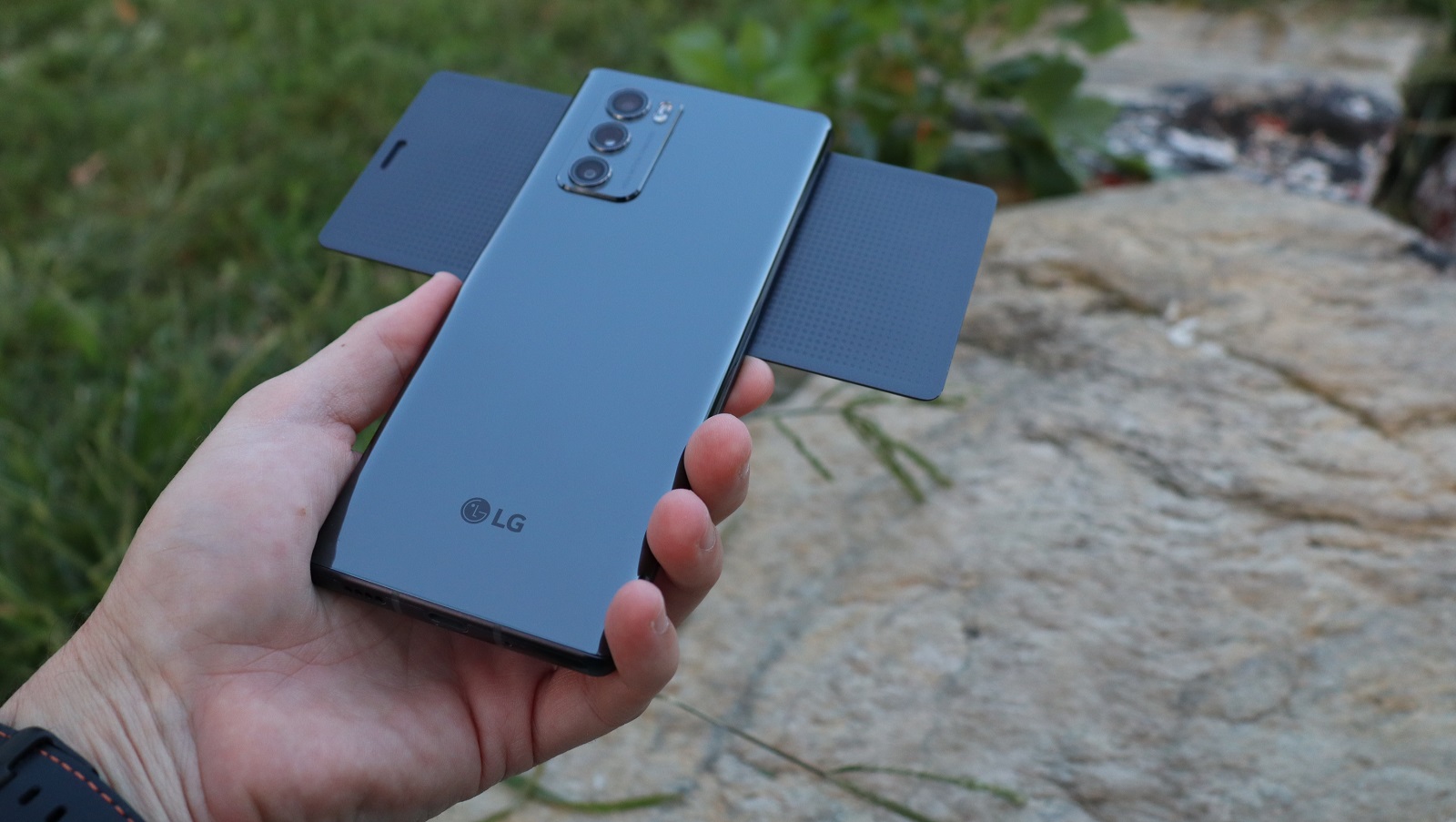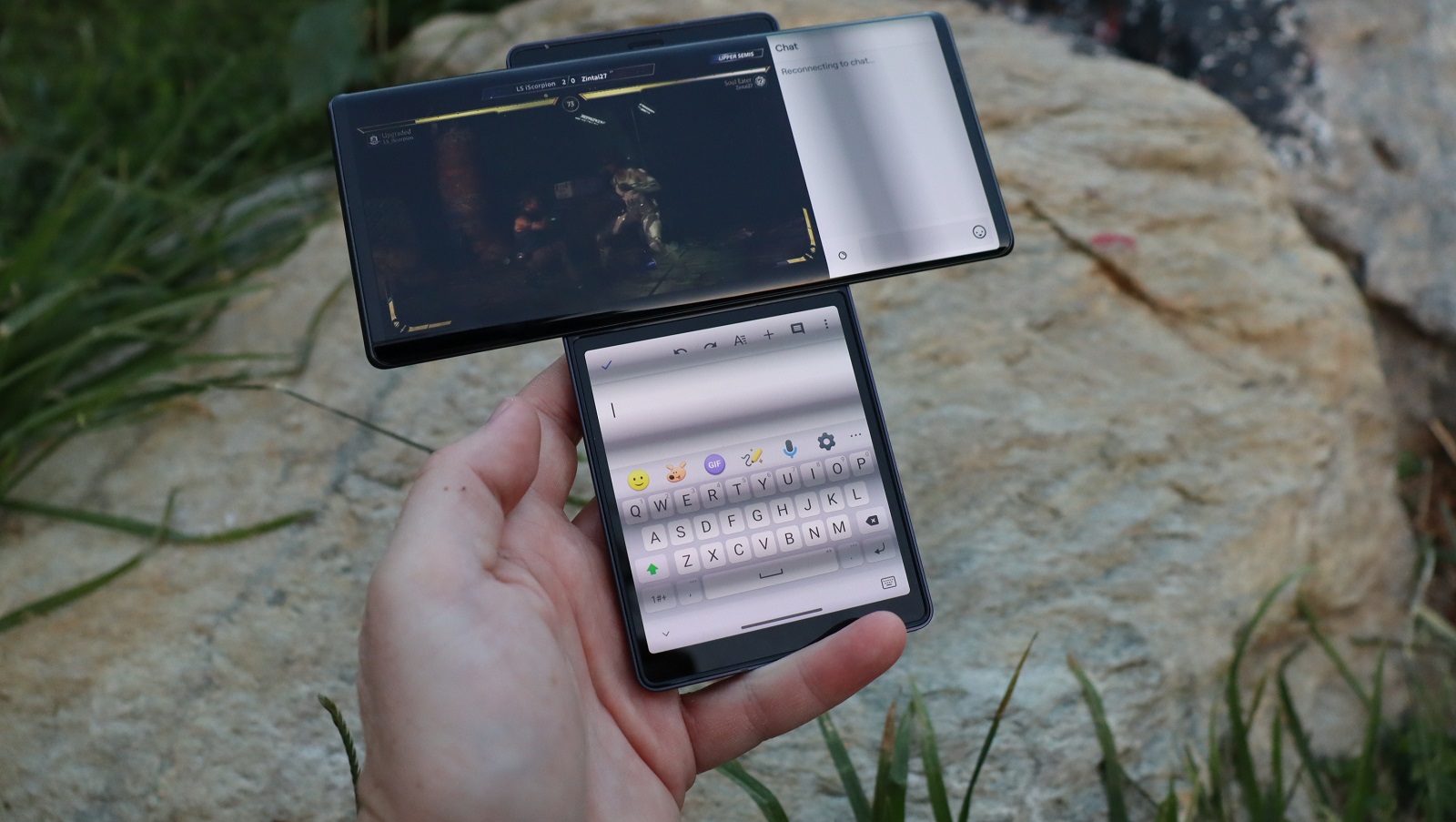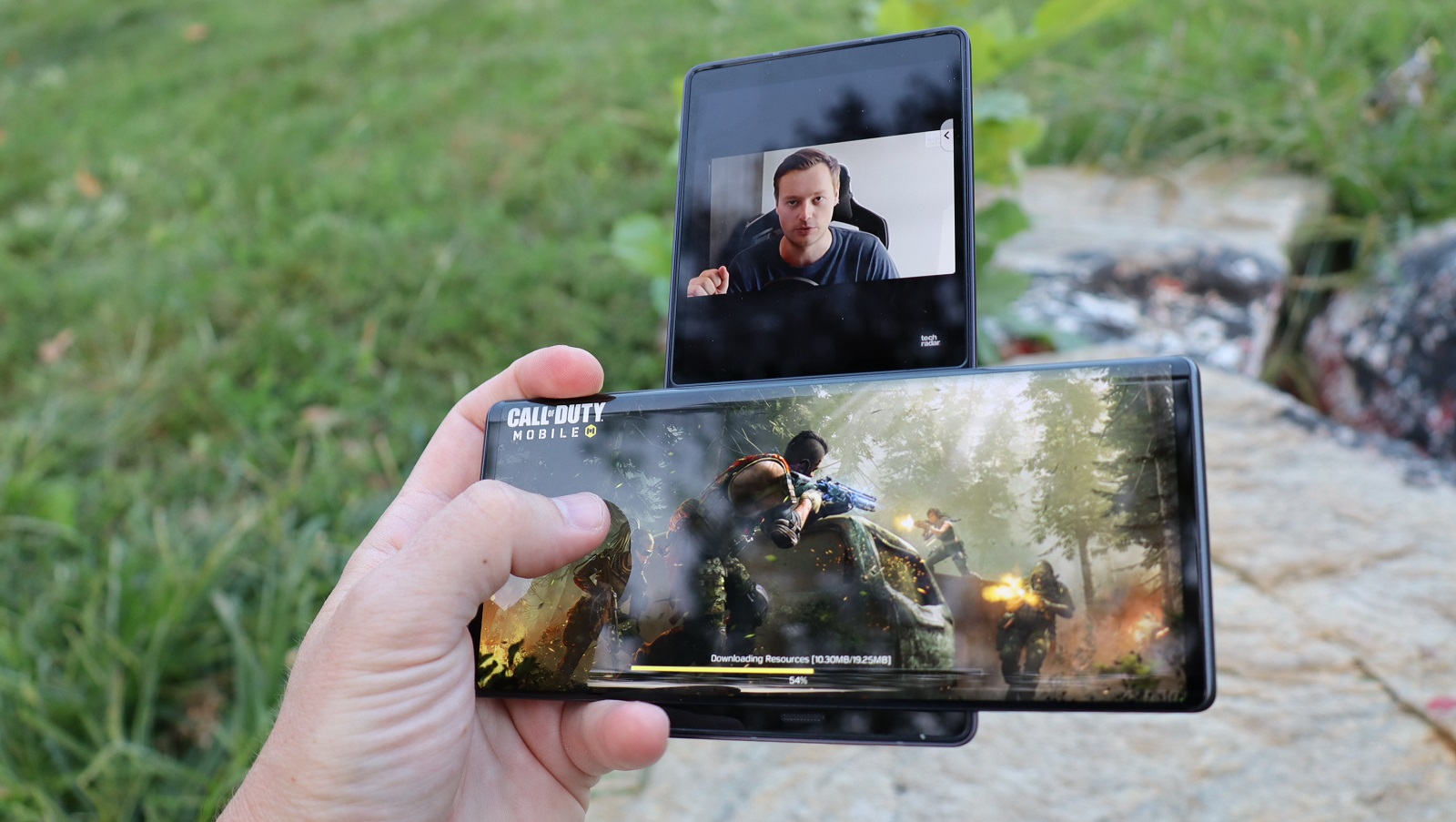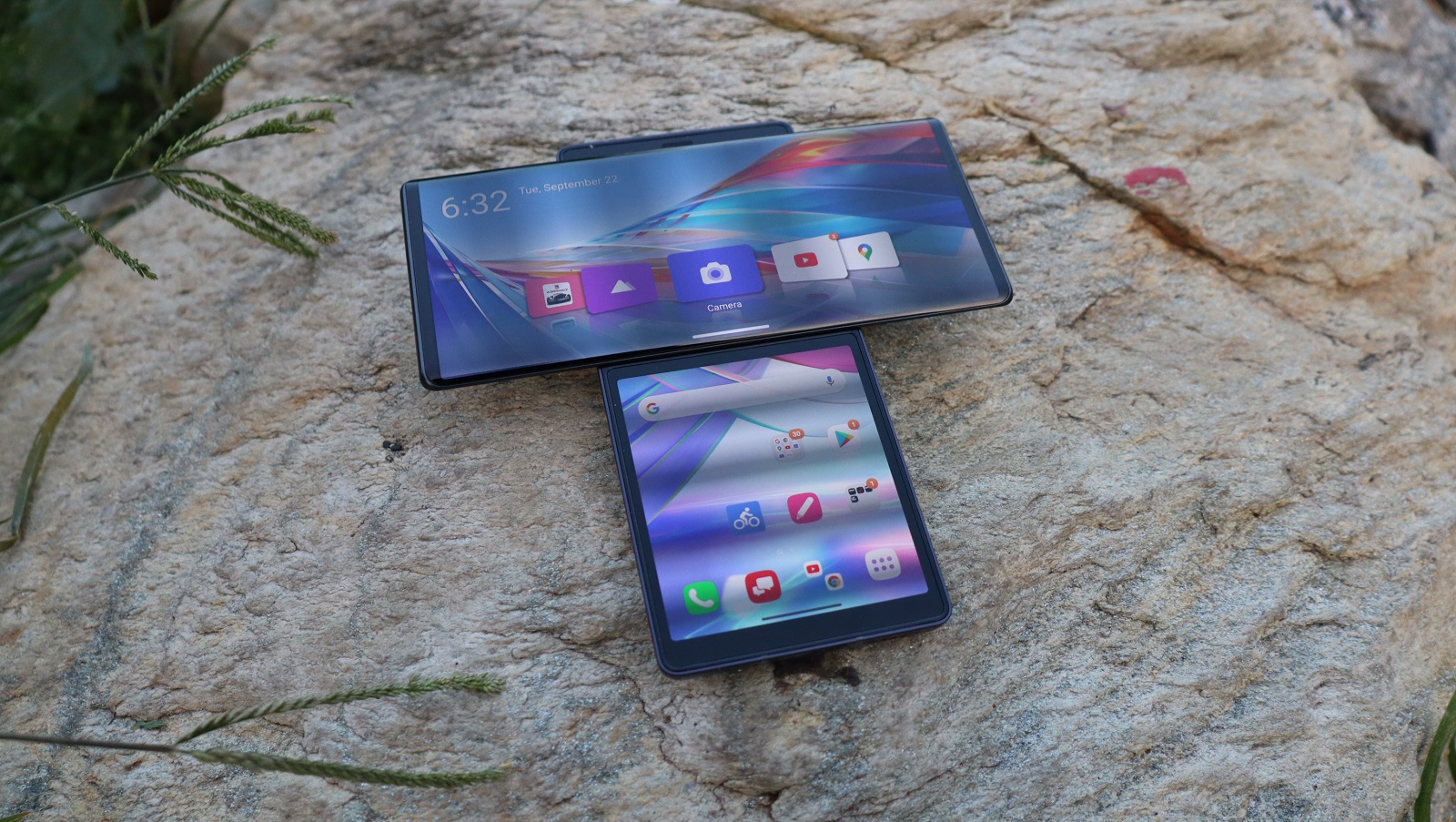In the 72 hours we’ve spent with the LG Wing 5G, we’ve found its simple, swivel-out design is fun and functional – a good alternative to pricey foldable phones when it comes to expanding screen real estate.
There are a few crucial bits of information that keep us from fully understanding who this phone is for, like price and availability – if it costs as much as foldable phones, for instance, it will feel like more of a gimmick and less of the kind of affordable compromise that we saw with the LG V60 ThinQ’s Dual Screen, for example, which bundled a second display in the box without additional charge.
The LG Wing 5G also doesn’t have its final software yet, so we’re withholding judgment about how suitable it is for consumers who aren’t immediately sold on the swivel-screen idea. The concept is decidedly neat and useful, but until we have all the pieces, we’re going to avoid recommendations and just share how we feel about this phone.
And we feel great about the LG Wing 5G – for the most part. There are still some situations where the extra display area is unnecessary and the phone is actually a bit weirder to use in swiveled-out mode than swiveled closed, like when gaming.
But the scenarios where it comes in handy to have an extra screen, even one so small by today’s standards, are plentiful. More importantly, the software cleanly pulls off switching from swiveled-open and swiveled-closed orientations. It doesn’t feel janky or unpolished, though we’re waiting for some obvious controls, like swapping apps between screen. Ultimately, it feels like a sound interface with far fewer shortcomings than we feared.
So let’s dive into what using this strange phone feels like.

What it feels like to swivel a phone open
The LG Wing 5G’s swivel action is the closest we’ll get to rotating open a phone with the kind of satisfying tactile ‘click’ of the Danger Hiptop (better known as the T-Mobile Sidekick). The new handset’s screen rests on a thin top layer, which rotates sideways and to the top of the handset to expose the mini-screen within the thicker bottom layer, forming a ‘T’ shape.
The Wing 5G’s swivel mechanism isn’t quite as spring-loaded as the Sidekick, which is a good thing, as it won’t pop open unexpectedly: you’ll need to put some pressure to slide it open, though you can still do it one-handed. Swiveling the phone closed takes a bit more effort to do without bringing your other hand to bear.
Opening and closing has a tactile and auditory feel to it, with a satisfying ‘click’ as it slides into place, which is half the fun of using the phone. Just like the original Razr (or its modern clamshell foldable version), the Wing 5G changes shape with gusto, and there’s something so joyous about flicking it open with a practiced flourish. While you can’t snap the handset closed to end a call like the flip phones of old, swiveling it open feels like unfurling a futuristic device – part Star Trek communicator, part Ghostbusters poltergeist detector.
LG claims it’s put the hinge through enough testing to estimate it will last through 200,000 swivels, and we theorize every last one will feel cool to do.

Okay, but what’s cool about a small extra screen?
Swiveling the phone open is one thing; using it is another. Granted, you can’t use every app on the mini-screen, and it’s a bit onerous to get apps loaded on the big screen at all. But when you can make use of both at once, it makes other phones feel decidedly old-fashioned.
Why? Based on our usage, we expect most users would likely use the main screen most for watching media while doing minor tasks on the mini-screen. If you were on a typical phone, you’d have to switch away from what you’re watching to take care of any immediate yet trivial issue – like looking up a fact online or sending a quick text – but you can do that on the Wing 5G while watching your Twitch livestream or Netflix show.
And yes, you can pretty easily take care of simple tasks on the mini-screen: at 3.9 inches, it’s nowhere near today’s smartphones, but at just a hair smaller in area than the iPhone 5’s 4-inch display, it has enough space for a compact Google search window or to text with a full keyboard. Writing more than a couple paragraphs on the mini-screen gets a bit annoying, but mostly due to the form factor, given the phone is slightly top-heavy when swiveled open.
While proper foldables and dual-screen phones like the Microsoft Surface Duo have more evenly-distributed displays that more easily run multiple apps (one on each screen, say), you’ll need to use both hands to get the most out of these book-shaped devices. The appeal of the LG Wing 5G is using more screen one-handed.
There’s other ways to use the Wing 5G when it’s swiveled open, including its cameras, which have a unique ‘Gimbal Mode’ with simulated-gimbal controls on the small screen: a directional pad to pan around and a few different settings to selectively lock the camera in place. We haven’t used this much in our short time, but it’s a neat tool in the phone’s kit for folks who get around more action photography.
There is one last option for swiveled-open photography: Dual Recording, which uses the pop-up selfie camera to record video from the front and back simultaneously – both the action and the reaction, so to speak, and it’s clear this mode is meant for live-streaming.
All other photography, either with the phone’s 64MP main shooter or the first ultrawide camera, are shot with the main screen swiveled shut. (The second ultrawide camera is only used for Gimbal Mode and paired with a ‘hexa motion sensor’ to stabilize the shot.)

Finally, there’s gaming. When swiveled open, you can use the second screen for social media or whatever else, though we didn’t quite find something we desperately needed to track while gaming aside from responding to texts without disturbing a play session. But imagine the orientation: while swiveled open, you’re holding on to the wide section (flipping the phone to an inverted ‘T’) to play on the main screen...and then texting on the top section, which is possible but awkward.
Worse, the LG Wing 5G’s main screen is on a thin layer when swiveled open – which you’re grasping to play. It’s less comforting to mash a thinner display section than it would be to play on a dense and comparatively solid phone. This doesn’t make the experience worse, it’s just something to consider, especially since the central section – the shaft of the inverted ‘T’ – tends to weigh the phone down.

Wait, do I even need to use the second mini-screen?
The LG Wing 5G works just fine without the display swiveled out. Truth be told, we were popping the phone open as much as we could, but the handset works just fine in its natural (unopened) state. The 6.8-inch OLED main display is still plenty of real estate to do any kind of task you’d perform on a traditional smartphone.
This is helpful for doing things that don’t need multiple screens, or when swiveling out is inconvenient, like in cramped quarters or while on the go. The Wing 5G is perfectly suitable for watching media and casual browsing with its Qualcomm Snapdragon 765G chipset and 8GB of RAM – specs that manage transitioning in and out of the multi-screen experience just fine.
Even if users get tired of the swivel mechanic, they’ll still have a respectable phone that covers most of the bases. Sure, it doesn’t have a telephoto lens like most other phones on the market (let alone the Samsung Galaxy S20’s 30x ‘Space Zoom’), nor the sheer volume of screen real estate that the Samsung Galaxy Z Fold 2 has (effectively three phone displays’ worth).
But the LG Wing 5G has a far more dynamic design than today’s smartphones, one that will likely draw eyes whenever it’s swiveled open. Even if it’s eventually priced out of reach for the typical consumer, whoever makes the leap will have something no competitor can touch: true novelty.
- Stay on top of tech news with the TechRadar newsletter
from TechRadar - All the latest technology news https://ift.tt/2G0TEiI
